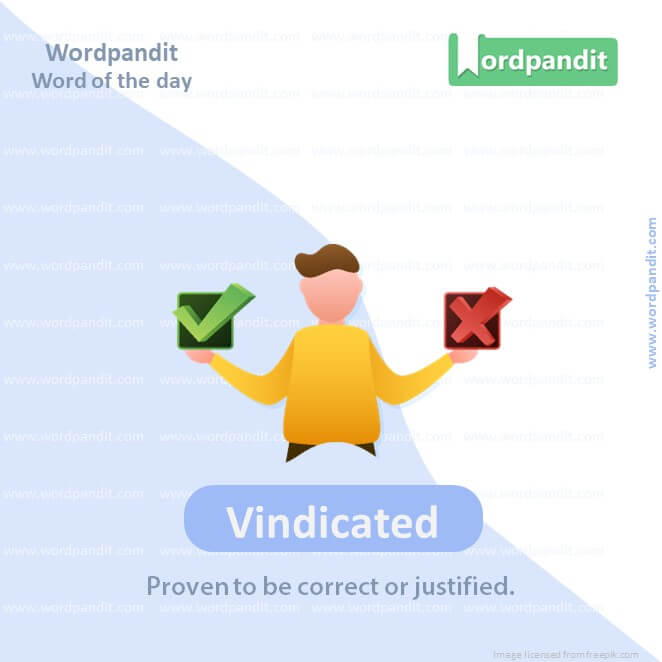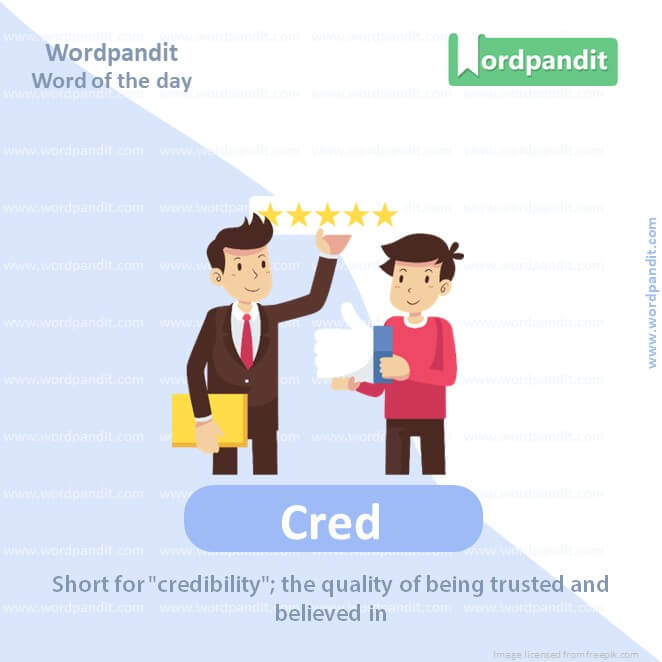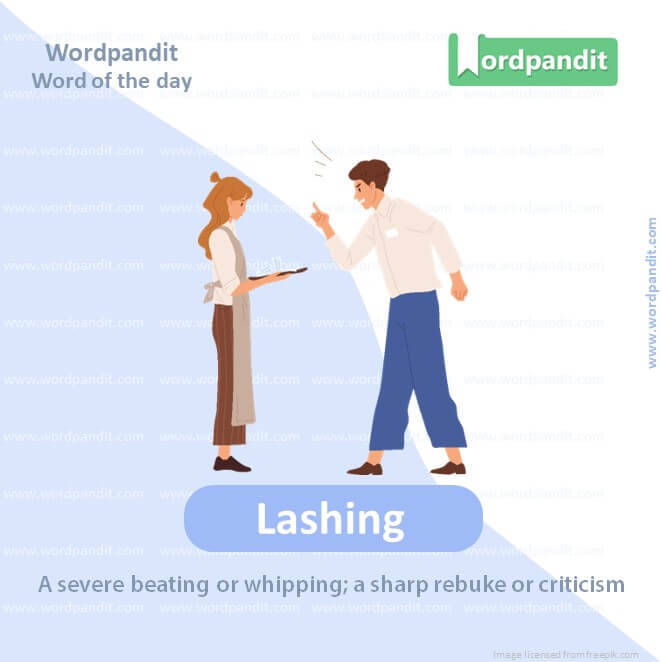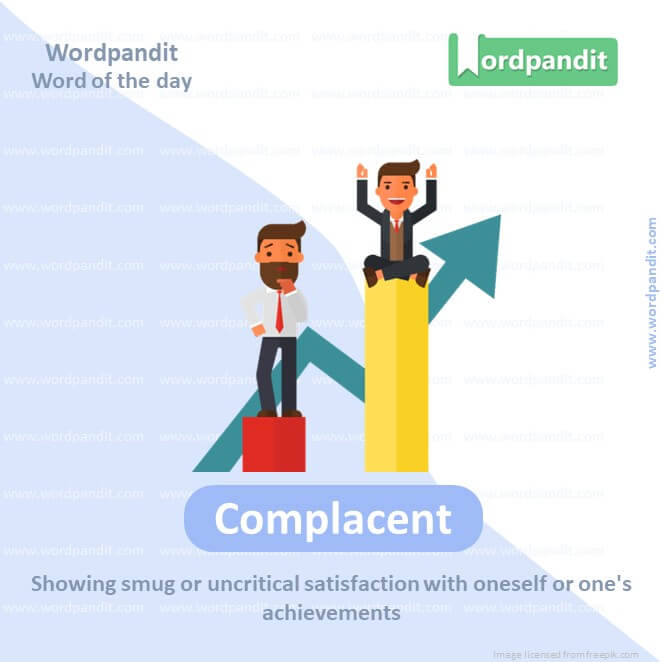Daily Vocabulary Words: List of Daily Used Words in Leading International Newspapers
Hi there. Welcome to this special section @ Wordpandit.
Our endeavour here is very simple: to highlight important daily vocabulary words, which you would come across in leading newspapers in the country. We have included the following newspapers in our selection:
• The New York Times
• The Washington Post
• Scientific American
• BBC
• The Guardian
• Psychology Today
• Wall Street Journal
• The Economist
We are putting in extensive work for developing your vocabulary. All you have got to do is be regular with this section and check out this post on a daily basis. This is your repository of words that are commonly used and essentially, we are posting a list of daily used words. Hence, this has significant practical application as it teaches you words that are used commonly in leading publications mentioned above.
Visit the website daily to learn words from leading international newspapers.
WORD-1: FRAYED
CONTEXT: As the negotiations stretched into the night, diplomats’ patience began to show signs of being frayed.
SOURCE: The New York Times
EXPLANATORY PARAGRAPH: Imagine you have a favorite teddy bear. Over time, after lots of cuddles and play, the teddy bear’s fur might start to look a little worn out or the edges might start to unravel. That’s what “frayed” means. Something is frayed when it looks a little worn out because it’s been used a lot.
MEANING: Showing wear by having threads coming apart or worn edges (adjective).
PRONUNCIATION: frayd
SYNONYMS: worn, tattered, ragged, unravelled, threadbare, worn-out, shredded
USAGE EXAMPLE:
1. The edges of my jeans are frayed from wearing them so much.
2. She tied her hair with a frayed ribbon.
3. The old flag was faded and frayed.
4. My backpack is so frayed that it’s time for a new one.
WORD-2: UNIVERSALISM
CONTEXT: The push for universalism in healthcare has gained momentum, but critics question the feasibility of such a system.
SOURCE: The Washington Post
EXPLANATORY PARAGRAPH: Imagine a big playground where everyone shares their toys with everyone else, no matter where they come from. Universalism is the idea that some things, like love and kindness, are for everyone, everywhere, no matter who they are.
MEANING: The belief that certain ideas, rights, or values should be shared and accepted by everyone (noun).
PRONUNCIATION: yoo-nuh-ver-suh-liz-um
SYNONYMS: inclusivity, generality, totality, all-encompassing, comprehensiveness, omnipresence, ubiquity
USAGE EXAMPLE:
1. Universalism promotes understanding and peace among different cultures.
2. He believes in the universalism of human rights.
3. The church’s teachings are based on the principles of universalism.
4. Universalism is a beautiful concept that encourages unity.
WORD-3: PERSECUTORS
CONTEXT: The victims of the conflict are seeking justice, hoping their persecutors will be brought to international courts.
SOURCE: Al Jazeera
EXPLANATORY PARAGRAPH: Have you ever seen someone being mean to another person for no good reason? A persecutor is like a bigger kid who bullies or bothers someone smaller or different than them, and not in a friendly way.
MEANING: People who treat others badly or harass them because of their beliefs, race, or other reasons (noun).
PRONUNCIATION: pur-si-kyoo-torz
SYNONYMS: tormentors, bullies, oppressors, tyrants, harassers, agitators, antagonists
USAGE EXAMPLE:
1. The villagers lived in fear of their persecutors.
2. History is filled with tales of brave individuals standing up to their persecutors.
3. The persecutors were eventually brought to justice.
4. Many refugees flee their homelands to escape their persecutors.
WORD-4: APARTHEID
CONTEXT: Decades after its official end, the legacy of apartheid still casts a shadow over the nation’s politics and culture.
SOURCE: BBC
EXPLANATORY PARAGRAPH: A long time ago in a place called South Africa, people were separated based on the color of their skin. They couldn’t go to the same schools, parks, or even drink from the same water fountains. This unfair system was called apartheid. It was like saying some kids can’t play on certain playgrounds because of their hair color.
MEANING: A policy or system of segregation or discrimination on the grounds of race (noun).
PRONUNCIATION: uh-part-hayt
SYNONYMS: segregation, discrimination, racial separation, racial discrimination, exclusion, division
USAGE EXAMPLE:
1. Nelson Mandela fought against apartheid in South Africa.
2. The museum had an exhibit about the history of apartheid.
3. The international community condemned apartheid as inhumane.
4. Apartheid laws restricted where people could live and work.

WORD-5: VINDICATED
CONTEXT: The whistleblower felt vindicated after the official investigation confirmed the allegations.
SOURCE: The Guardian
EXPLANATORY PARAGRAPH: Imagine someone blamed you for eating all the cookies, but later, they find out you didn’t do it. When everyone realizes you were right all along and you didn’t eat the cookies, you feel vindicated. It’s like getting an “I told you so” moment.
MEANING: Proven to be correct or justified (verb).
PRONUNCIATION: vin-di-kay-ted
SYNONYMS: justified, validated, verified, confirmed, corroborated, substantiated, supported
USAGE EXAMPLE:
1. After finding the real culprit, Alice felt vindicated.
2. The new evidence vindicated her claims.
3. I knew I was telling the truth, and today I was vindicated.
4. The investigation vindicated the company’s safety procedures.

WORD-6: CRED
CONTEXT: “The tech company, known for its environmental initiatives, has gained considerable ‘green cred’ among its users.”
SOURCE: Scientific American
EXPLANATORY PARAGRAPH: Imagine you have a friend who’s really good at making toy houses, and everyone knows it. Because of his skill, he’s got a lot of “cred.” “Cred” is short for “credibility,” and it means that people believe or trust in something or someone because of what they can do or what they know.
MEANING: Short for “credibility”; the quality of being trusted and believed in (noun).
PRONUNCIATION: kred
SYNONYMS: reputation, status, prestige, respect, trustworthiness, authority, influence
USAGE EXAMPLES:
1. He earned street cred with his impressive breakdancing moves.
2. Her years of experience in the industry give her a lot of cred.
3. As a writer, winning that award certainly boosted her cred.
4. Many young artists hope to gain cred in the music community.

WORD-7: LASHING
CONTEXT: “Coastal towns prepared for the lashing winds and torrential downpour forecasted with the approaching hurricane.”
SOURCE: The Economist
EXPLANATORY PARAGRAPH: Think about a big rainstorm where the rain is coming down really hard, like it’s almost whipping the ground. That’s called “lashing” rain. Or, if you tie something tightly with a rope, you’re also giving it a “lashing” with the rope.
MEANING: A severe beating or whipping; a sharp rebuke or criticism (noun).
PRONUNCIATION: lash-ing
SYNONYMS: beating, thrashing, whipping, battering, fastening, tying, binding
USAGE EXAMPLES:
1. The rain was lashing against the windows.
2. He gave a lashing to the suitcase to secure it to the roof of the car.
3. The ship endured the lashing waves during the storm.
4. The tents were given an extra lashing to withstand the strong winds.
WORD-8: REPRESSION
CONTEXT: “Reports from the region indicate a significant increase in repression, with many journalists and activists being detained.”
SOURCE: Al Jazeera
EXPLANATORY PARAGRAPH: Imagine if someone told you that you can’t speak about your favorite toys or you can’t show your drawings to anyone. Repression is like when someone or something stops you from expressing yourself or doing what you like.
MEANING: The act of stopping or suppressing something from being expressed or revealed (noun).
PRONUNCIATION: reh-presh-un
SYNONYMS: suppression, subjugation, restraint, control, inhibition, silencing, containment
USAGE EXAMPLES:
1. The government was known for its repression of free speech.
2. Many artists faced repression in their home countries.
3. The repression of her feelings led to a lot of stress.
4. History books tell tales of the repression faced by many communities.

WORD-9: JAUNTY
CONTEXT: “The parade, with its jaunty music and colorful floats, brought a sense of joy to the city streets.”
SOURCE: The Guardian
EXPLANATORY PARAGRAPH: Imagine someone walking with a big, bouncy step, whistling a tune, and wearing a bright hat tilted to one side. They look cheerful and full of energy, like they’re having the best day ever! That’s what “jaunty” means.
MEANING: Having or expressing a lively, cheerful, and self-confident manner (adjective).
PRONUNCIATION: jawn-tee
SYNONYMS: cheerful, lively, perky, sprightly, bubbly, chipper, upbeat
USAGE EXAMPLES:
1. She wore a jaunty hat tilted to one side.
2. His jaunty walk showed that he was in a good mood.
3. The song had a jaunty rhythm that made everyone want to dance.
4. Despite the long journey, he arrived with a jaunty spirit.

WORD-10: COMPLACENT
CONTEXT: “Despite the initial success, the team’s coach warned against becoming complacent in the upcoming matches.”
SOURCE: The Washington Post
EXPLANATORY PARAGRAPH: Let’s say you’re really good at a game, and you’ve won many times. If you start thinking you’ll always win and stop practicing or trying hard, you’re becoming “complacent.” It’s like feeling too cozy and not worrying about getting better or facing challenges.
MEANING: Showing smug or uncritical satisfaction with oneself or one’s achievements (adjective).
PRONUNCIATION: kuhm-play-suhnt
SYNONYMS: self-satisfied, smug, self-contented, unconcerned, indifferent, self-assured, overconfident
USAGE EXAMPLES:
1. After several victories, the team became complacent and lost the next match.
2. We shouldn’t be complacent about our achievements; there’s always room for growth.
3. Her complacent attitude led to missed opportunities.
4. The business was doing well, but the owner’s complacent approach resulted in a decline in sales.







